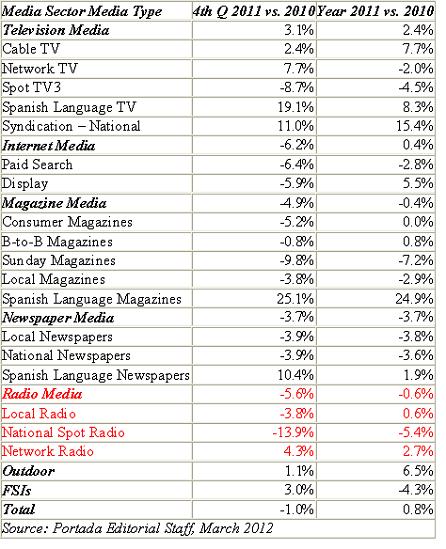Today, Paul Jacobs takes a look at how a legacy brand is targeting youth because they’re the future rather than standing pat with its existing consumer base.
It turns out that MTV has a division called “MTV Scratch,” a group dedicated to helping brands relate to the youth market. Last week, an article in The New York Times took a look at Scratch, and their initiative to place young, connected marketing specialists at GM headquarters, located in the Renaissance Center here in Detroit.
You’ve seen this building complex while watching Detroit-area sporting events. It’s a building that’s huge, cavernous, cold, and corporate. In the article, Ross Martin, the EVP of Scratch, who is also a drummer in an alternative band, calls it the “Death Star.” It’s quite a clash of cultures, as you can imagine.
 The noteworthy part is that Scratch has devised a 5-year strategic vision for the Chevrolet brand to help it reverse what Martin says is the fact that young people perceive cars “as a giant bummer.” In his words, everything associated with the dashboard is depressing.
The noteworthy part is that Scratch has devised a 5-year strategic vision for the Chevrolet brand to help it reverse what Martin says is the fact that young people perceive cars “as a giant bummer.” In his words, everything associated with the dashboard is depressing.
And it gets worse. In 1998, nearly two-thirds (64%) of potential drivers had licenses, compared to under half (46%) three years ago. While my generation of America was in love with cars, you can understand why GM is concerned about a decreasing lack of interest in vehicles among young people in its core product. (Unless, of course, you work in radio.)
So this long-range approach is designed to not only alter a dyed-in-the-grey-flannel corporate culture but to also position MTV (and other Viacom channels) as the perfect solution to understanding key audience tribes. And it’s a textbook approach that other media outlets – like radio – should study and adopt.
MTV knows that ratings aren’t really their issue. Neither is the economy. It’s the perceived value of their target audience that will ultimately drive their success, and the solutions they can provide. Their deep knowledge of young people, their culture, and aspirations is what provides value to companies like GM. And it also reinforces that the MTV audience is viable, worthy, and desirable.
Media execs, managers, and sellers all should sit up and take note – it’s not about the ratings. Philippe Dauman, CEO of Viacom, delivers the MTV mantra: “We used to use research in a very proprietary way, but it became clear that advertisers were hungry for our insights.”
No media outlook or industry can afford to sit back and wait for the dollars to roll in. There are too many options, pricing power is being challenged, digital CPMs are low and relatively unproven, and of course, the economy is on a slow rebound. Who knows how long it will take before health and stability return to the media world – if, in fact, it does?
Kantar Media Intelligence just issued their 2011 Ad Expenditures Report and it’s not pretty. While there’s modest growth in some areas (like Spanish language media and cable television), the rest of the media world is struggling, and radio looks softer than most.
 There are some green shoots for radio. As reported in Inside Radio, CBS Radio’s Altitude Group has done a great job with “Marketing Masters” – profiles of marketers who tell great stories about branding, campaigns, and media. Altitude’s EVP Rich Lobel notes some of the featured companies don’t even use radio. But when they get feedback from friends and co-workers who heard these :60 features on the radio, it reinforces the power of the medium.
There are some green shoots for radio. As reported in Inside Radio, CBS Radio’s Altitude Group has done a great job with “Marketing Masters” – profiles of marketers who tell great stories about branding, campaigns, and media. Altitude’s EVP Rich Lobel notes some of the featured companies don’t even use radio. But when they get feedback from friends and co-workers who heard these :60 features on the radio, it reinforces the power of the medium.
Their case studies are indicators that radio has the ability to package, connect, integrate, and yes, even market its own strengths to advertisers who take the medium for granted.
From the executive suites to the cubicles to the PD’s office, it’s time for radio to stop eating its young. Fighting cost-per-point battles or tossing in a remote (or for some companies, bonusing an entire radio station) to get on the buy isn’t growing the pie. It’s diminishing the industry.
 Radio’s path to growth is to take control of its brand reputation by developing a comprehensive, industry-wide strategy. Why is MTV embedded with General Motors as the youth gurus? What about radio’s expertise? In a line-of-sight way, most radio stations are more physically in-touch with the youth market on a daily basis than MTV. New York City is a wonderful place but it’s about as representative of America as Las Vegas. Hometown “localvore” knowledge is what counts when it comes to ringing cash registers and making sales – and most radio companies still have it.
Radio’s path to growth is to take control of its brand reputation by developing a comprehensive, industry-wide strategy. Why is MTV embedded with General Motors as the youth gurus? What about radio’s expertise? In a line-of-sight way, most radio stations are more physically in-touch with the youth market on a daily basis than MTV. New York City is a wonderful place but it’s about as representative of America as Las Vegas. Hometown “localvore” knowledge is what counts when it comes to ringing cash registers and making sales – and most radio companies still have it.
MTV isn’t selling data (their ratings go up and down based on the popularity of Snooki or Justin Bieber). They are selling knowledge and solutions. They are targeting the world’s largest car company and in the process, they are building a long-term strategic partnership.
Radio offers remotes and live reads.
Who’s going to win over the long run?
- For Radio, Will It Be Christmas In April (And Hopefully, May)? - April 21, 2025
- The Revolution Will Not Be Monetized - December 30, 2024
- What Kind Of Team Do You Want To Be? - October 4, 2024




Didn’t radio pretty much turn its back on youth back in the 90s and doesn’t it have to double back there before it can hope to glean, much less sell any insights about youth? And doesn’t Arbitron have to provide proportional representation among 12-34 cell phone only homes for that kind of move to make economic sense?
I’m sad to see the disconnect between auto makers and youth drivers. I think the cars sold today are awesome – but my tastes are obviously different than my kids. What does a typical 20 year old want in a car that they aren’t getting?
Bob, I know Paul is going to want to chime in here, too. Yes, to your first question. Regarding cell phone only, Arbitron has stepped up with both diaries and meters. But that doesn’t change radio’s love affair with 25-54s, essentially at the exclusion of everyone else.
As for youth and cars, I cannot help but wonder if the economy hasn’t had a discouraging effect. As cool as car may look – and between a Scion on the one hand and a Camaro on the other – you’d think that might make the difference. Perhaps Gen Y is smart enough to look beyond the image of cars and focus on some of the practical considerations – maintenance, gas, etc. GM is smart to be focused on rekindling American youth’s love affair with cars. Just as radio is challenged in this area, so apparentlly are the automakers.
Thanks for taking the time and giving this thought.
All brands – cars, radios, politicians,etc. – have to continually grapple with dealing with new demographic groups. The problem is many are stubborn and assume that they’ll always have their base of customers and that’s good enough. Yet these new groups actually represent what they need – new customers.
And this is the challenge for radio sellers. The industry continues to focus on the 6-7% of advertisers who buy radio while ignoring the larger pool who are shifting their dollars to other media and flavors of the month who are sexier than they are. But the problem is that radio tries to fight the battle based on metrics – PPM, CPP, streaming data, “Likes” – when, as MTV is demonstrating, the differentiator is the knowledge about a specific target and leveraging that value to the right advertisers.
At a time when radio revenue is flat and companies are fighting over the same 7% share of radio dollars, the smart sellers and companies are looking at deeper pools of dollars and are creating new strategies based on expertise and solutions. It’s quite a powerful combination.
Always a pleasure to engage with you, Bob.
As much as the Programming side of radio has changed and adapted to the “NEW” radio this is another point on how sales has to change the way they sell Radio. Programmers take pride adjusting and tweaking formats to the trends of the demo constantly. Yet on a sales call I still see them selling like they did 10 years ago. Here are the rating ands rates. Bravo to the companies that actually show the value of your brand in this economy for their target audience that will ultimately drive their success. Sales needs to study harder become solution oriented and have a deep knowledge of their brands and markets they serve. Many are selling multiple stations in combo that they have never listened too. Is added value valuable or is it just the way we’ve always done it. As you said Media execs, managers, and sellers all should sit up and take note –
Steve, you’ve nailed it. I often start off sales meetings asking, “How many of you want to make more money this year than you did last year?” All raise their hands. Then I tell them that it probably won’t happen if they sell the same way they’ve always sold, to the same buyers, using the same metrics (ratings). You can see them instantly deflate.
The world has changed, and the way that we sell has to also. In many radio stations and companies there has been change – mobile apps, streaming, database, social, etc. But if you were to have left the business in 1985 and walked into most sales departments today, it would look eerily the same.
Thanks for the comments. Let’s keep the dialogue going.
Fred –
Your most recent tweet – “stop selling data and start marketing solutions” is the essence of the discussion Paul started. The Internet gurus lament daily about how “the score (likes, Klout, Kred etc.) is not an indicator of influence” yet both radio (with Arb) and the web are being sold based on data that does not correlate to the ringing of the cash register.
Nothing correlates to creating P-1 listening more than playing the right songs. When the music stops…what homework have we done to know about the life of the target listener to correlate the content that will create commerce? New revenue models need to be developed. I want to ground zero our approach to all content that takes place when the music stops. As an industry we need a stake in the outcome of where we are sending listeners for their solutions.
The newest Internet success stories are sites with content that lead to transactions. Madonna is selling her newest music set on fab.com for example, a site where you can discover cool and different stuff for you or your home. Jessica Alba (movie-star) just got $27 million dollars in funding for her own web site selling Eco-friendly baby stuff. And radio can’t play on this platform?
We can’t just keep taking money from anyone willing to pay for access to our audience. We must share with our audience things that are so personally relevant they might spend money on it. Then share in the transactions or share in the overall success of the destination.
Albert Einstein sums it up – “We can’t solve problems by using the same kind of thinking we used when we created them.”
Mike Anthony
Great points, Mike. I agree that metrics have turned into a trap that limits strategic thought. We wind up focusing on a number instead of creating substantive solutions that work.
Paul
Thanks for the insights, Mike. Marketing Is not CPMs and buying a schedule of :60s. The MTV/GM example along with the ones you submitted are proof that there are new ways to generate results. Thanks for your comments.